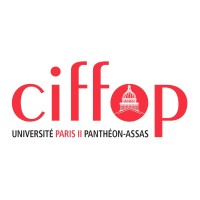






Research day: Asian Values: Academic & Professional Contexts
Please note that the November 17 Research Day has been postponed to February 29.
The Research day will be held at Paris Pantheon Assas university, at the Guy de la Brosse site.
Call for paper
ISIT and the University of Paris 2 and LARGEPA, with the support of AGRH, are organising a Research Day on the theme Asian Values : Academic and Professional Contexts. This day will take place on November 17, 2023 at ISIT (Arcueil Campus-RER B- Laplace).
Objective
The philosophical and spiritual principles of Confucianism, Taoism or Buddhism are the subject of continuous interest by researchers in the history of ideas (Zufferey 2007; Zhang 2009; Billioud & Thoraval 2014) and in Human Resources Management (Amanbayev & Alii 2021). This research evokes several Asian philosophical systems often associated with the Confucian tradition which emphasises the importance of family, respect for authority and the search for harmony. They are deeply rooted and relatively stable, even in the face of significant change and turbulence (Ward & Alii 2002). A plethora of research has focused on the convergence-divergence of values. Indeed, these values are often seen as being in contrast to the values of European cultures inherited from the Judeo-Christian religion, Greek philosophy and the Enlightenment. In the context of Human Resource management, marked by a strong investment of people at work, Asian values can be seen as emphasising :
- Collective responsibility, organisational loyalty and long-term employer-employee relationships, of which the guānxì is a strong stepping stone to easy and effective entry into the collaborative network (Choi 2018)
- respect for authority and the need to maintain a hierarchical structure in the workplace; the importance of "face" (Yau 1994)
- the search for moral, psychological, aesthetic and metaphysical harmony (Allison 1998)
Yet, Asian values may not be as unified or determined in a monolithic sense as they appear and this raises questions about their content and definition (Makeham 2021). Indeed, could it not be said that Asia is experiencing an adaptation of management practices influenced by a hybrid set of values, driven by a change in economic ideology (Ralston 1997) (Warner 2002) and the awakening of an ecological consciousness (Bastianelli 2022)? In a context of globalisation and increasing human exchange, these values are subject to change and adaptation (Huque & Jongruck, 2020) which impacts, among other things, the nature of leadership (Lau & Okpara, 2020) and CSR policies (Ooi & Nagata, 2021).
Where do these new models and practices come from? How are they developed? Do universities, as a training ground for people who work in companies, play a role in the hybridisation of values? Indeed, higher education is the crucible in which foreign and local students are trained and learn to live according to other norms, other criteria, and other standards. For example, China, which is experiencing a boom in higher education, is the leading country of origin of student mobility, accounting for almost one million of the 5.3 million international students studying for qualifications abroad in 2017. In addition, China is home to numerous joint courses and offshore campuses that mark a growing interconnection with the United States, England, but also France.
In the face of this increasing academic mobility, courses and training on interculturality have flourished in Europe, which integrate Asian values as a homogeneous whole. However, recent studies in different disciplines call for nuance and emphasise the intercultural interactions (Gong & Bellassen 2016) and the intercultural sensitivity required (Sauquet & Vielajus 2014). In language and culture didactics, in particular, studies highlight diversity and shows that students, confronted with other methods and contents than those in which they have been trained, adapt to different dynamics (Bouvier-Laffitte & Loiseau 2015). Recent studies in sociology address the question of similarities and differences in academic approaches. (Guiheux & Wang 2018). Furthermore, while language courses have always included cultural elements related to the foreign language being taught, in Chinese universities, 'civic' courses have recently emerged, which integrate elements of Chinese history and culture within the foreign language courses themselves.
This raises three main questions:
- What values are taught in universities and practiced in Asian companies (China, Japan, Vietnam, South Korea)?
- In light of the growing number of students studying for qualifications abroad, how is the hybridisation of values taking place within universities in and outside Asia? And how do students cope with the shift between academic and corporate values?
- Within companies, how does the singularity of Asian values compared to those displayed and practised in Europe question human resources management habits and international management?
We propose this research day involving researchers and company practitioners to explore the values of Asia and their reality in universities and companies, particularly in the field of HR, from an interdisciplinary perspective.
Issues and orientations
- SUBJECT
- How do the different values operating in Asia - Confucian, Christian, Buddhist and others - fit together in terms of homogeneity, variation, evolution and resonance?
- What is the place of spirituality in Asian values?
- DIFFUSION
- How are Asian values taught in universities and how is the transition to the world of work made?
- How are Asian values discovered, understood by managers and integrated into international HR management?
- EFFECTIVENESS
- Does the inclusion of Asian values improve effectiveness in learning academic subjects and in organisations or not?
- What awareness can this reflexivity exercise lead to from an intercultural point of view?
We invite all researchers, teachers and managers to join us for this research day to discuss the characteristics and transfers of values in academic and professional contexts.
Submission format
Official languages: English and French.
Two main types of participation are accepted for this event: thematic symposia bringing together researchers, consultants and business professionals and research papers.
The symposium brings together several presentations and discussions on a specific theme.
- Within this framework, the participants (researchers and/or company professionals and/or consultants) organise themselves, propose a 3-page document containing the guiding thread (theme and justification), with a timetable for each presentation and a biography of each speaker.
- Professionals wishing to testify about their practice are invited to submit a fifteen-line description of their contribution in order to join a symposium.
- The duration of each symposium is 1h30.
The presentation of a paper is based on an independent research project or topic that has been completed or is in progress. Presenters will communicate their research by presenting a PowerPoint slide show in two formats of varying length: 1) for ongoing projects 10 minutes in length 2) for completed research 15 minutes in length. This session allows authors to present their research ideas, conceptual framework, research questions, practical problems, research methodologies, work in progress and study plan, etc. The aim is to provide feedback that helps authors to further develop their research studies and to foster exchange.
The submission of a paper consists of an extended abstract (maximum 1.5 pages) outlining the subject of the research, the central question, the hypotheses, the theoretical framework, the methodology used, the results obtained or expected results.
For 10-minute presentattions of ongoing projects, speakers should present a maximum of three slides, while for 15 -minute presentations of completed research, speakers should present a maximum of five slides.
We hope that all researchers and business professionals interested in Asian culture and management will participate in this event, present their research, share their experiences and take part in the discussions.
SELECTIVE REFERENCES
- Allinson, R. (1998). “Complementarity as a Model for East-West Integrative Philosophy.” Journal of Chinese Philosophy, Vol. 25, no. 4, 505–517.
- Amanbayev, Y., Aljanova, N., Mirzaliyeva, S., & Ghosh, A. (2021). Religion as a Dominant Logic for Entrepreneurial Activities: Theorizing the Dynamics in and Around ‘We’d Meat Burger, Kazakhstan.’ South Asian Journal of Business and Management Cases, 10(3), 287–302.
- Bastianelli, N. (2022). Quand la Chine s’éveille verte…. Paris: L’Aube.
- Billioud, S. & Thoraval, J. (2014). Le Sage et le peuple. Le renouveau confucéen en Chine. Paris, CNRS Éd. « Bibliothèque de l’anthropologie »
- Bourelly, C. (2021). Contrat de travail et relation d'emploi en Chine. Paris: L'Harmattan.
- Bouvier-laffitte, B. et Loiseau, Y. (2015). Polyphonies franco-chinoises - Mobilités, dynamiques identitaires et didactiques. Paris: L'Harmattan.
- Choi, Y. (2018). The asian values of Guānxì as an Economic Model for Transition toward Green Growth. Sustainability, 10(7), 2150.
- Gong, J. & Bellassen, J. (2017). Face et interface : la politesse chinoise, les termes de parenté et la conscience interculturelle, in Langues, Cultures et Sociétés, vol.2-2016, p.72-84.
- Guiheux, G. (2021). Histoire des entreprises socialistes : chantiers en cours. Entreprises et Histoire, 2021. ⟨halshs-03432493⟩
- Guiheux, G., Wang, SM. (2018). A Case of Double Socialisation in the Social Sciences: The Experience of Chinese Researchers Trained in France. China perspectives, 2018 4, pp.21-30.
- Huque, A. S., & Jongruck, P. (2020). Civil service reforms in hong kong and thailand: Similar goals, different paths. [Civil service reforms in Hong Kong and Thailand] Public Administration and Policy, 23(2), 111-123.
- Kovacs, G. (2020). The value orientation of buddhist and Christian Entrepreneurs- A comparative Perspective on Spirituality and Business Ethics. Palgrave Macmillan.
- Lau, W. K., Li, Z., & Okpara, J. O. (2020). An examination of three-way interactions of paternalistic leadership in China. Asia Pacific Business Review, 26(1), 32–49.
- Laulusa, L., Eglem, JY (2011). L'impact des valeurs confucéennes sur le processus de contrôle de gestion dans une entreprise d'État chinoise. Comptabilité Contrôle Audit 2011/3 (Tome 17), 7- 29.
- Makeham, J. (2021). Savidan, P. (trad.). Philosophie chinoise et valeurs universelles dans la Chine d’aujourd’hui, in Cheng, A. Penser en Chine, Paris, Éditions Gallimard, 31-57.
- Ooi, C.-A., Hooy, C.-W., & Nagata, K. (2021). Corporate Social Responsibility, Firm Value and Corporate Governance Code Revisions: The Asian Evidence. Asian Economic Journal, 35(1), 27–56.
- Ralston, D.A., Holt, D.H., Terpstra, R.H. and Yu, K-C. (1997). The impact of national culture and economic ideology on managerial work values: a study of the United States, Russia, Japan, and China. Journal of International Business Studies, 1st Quarter, 177-207.
- Sauquet, M., Vielajus, M. (2014). L’intelligence interculturelle- 15 thèmes à explorer pour travailler au contact d’autres cultures. Paris, Editions Ch. L.Mayer.
- Zhang, N. (2009). Penser la notion de “pardon” dans le contexte culturel chinois : à partir d’une lecture de Jacques Derrida, in Wang, F. Le choix de la Chine d’aujourd’hui. Entre la tradition et l’Occident, Paris, Les Indes Savantes, 49-58.
- Zufferey, N. (2017). De Confucius au romancier Jin Yong, in Cheng A. La pensée en Chine aujourd’hui, Paris, Gallimard, 75-102.
- Ward, S., Pearson, C., & Entrekin, L. (2002). Chinese cultural values and the asian meltdown. International Journal of Social Economics, 29(3), 205-217.
- Warner, M. (2002). The future of Chinese management. Asia Pacific Business Review, Vol. 9 No. 2, 205-23.
- Yau, O.H.M. (1994). Consumer Behaviour in China: Customer Satisfaction and Cultural Values. New York: Routledge.
Timetable for submissions :
- Deadline for submission of intentions: 15 June 2023
- Response of the Scientific Committee to the authors: 1 September 2023 30 November 2023
- Registration opens on 17 October 2023 29 january 2024
- Deadline of submission of presentations : 1 November 2023 22 february 2024
- Date of the research day: 17 November 2023 29 february 2024
Contact
The website for the presentation and submission of paper proposals is
https:///data/sc/production/valeursdasie.sciencesconf.org/
Paper proposals are managed on the sciencesconf.org platform, whose address for the conference is /data/sc/production/valeursdasie@sciencesconf.org. In order to access the submissions, please use the account already listed on sciencesconf.org or to create an account.
- Non-research professionals can contact
Catherine.voynnet-fourboul@u-paris2.fr
Elbaz.pascale@isitparis.eu
Organising Committee: Pascale Elbaz, Catherine Voynnet-Fourboul, Mobai Li, Hayoung Park, Zechen Chen
Scientific Committee :
Antoine MASINGUE, University of Valenciennes
Béatrice BOUVIER LAFFITTE, Catholic University of the West
Florence NOGUERRA, Paul Valéry University Montpellier
Gilles GUIHEUX, Université Paris Cité
Joël BELLASSEN, Honorary General Inspector of National Education
Muriel DE FABRÈGUES, University of Paris Panthéon Assas
Nathalie LORRAIN, Intercultural Itineraries
Olivier BADOT, University of Caen, ESCP
Richard J. MAJOR, Institute of Social Management (IGS)
Sébastien POINT, Strasbourg School of Management
